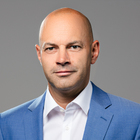Why are there so many hospitality technology vendors in our industry? (Part II)
12 experts shared their view
(IT Professionals Perspective) Some hoteliers are rightfully disoriented in the current myriad of hospitality technology vendors and solutions and are dreaming of a one-stop-shop tech solution that will cover all of their PMS, RMS, CRS, Channel Manager, CRM, CMS and DMS needs. The question is, 1) is the one-stop solution already here?, 2) Will a future one-stop-shop solution be viable enough vs the current multitude of specialist hotel technology vendors... or 3) Will we never see such a solution.... and why? (also have a look at Digital Marketeers Perspectives on this topic)
I'd like to think that we will get a one-stop-shop hotel tech solution one day. But hey, let's face it; I did not happen the last 25+ years and I have my doubt that one will arrive in the coming years. We simply have too many different interests that drive our technology investments:
- Brand vs. operator vs asset-manager vs owner
- Myriad of jurisdictions, cultures and languages
- Talent and skill of staff we (and our tech supplier) are able to recruit
- Etc …
Many of the biggest technology vendor tried and failed to deliver a functional and commercially adequate solution in the past.
Some cash-rich vendor are going around buying single solutions and adding them into their portfolio of products – that isn't a one-stop-shop hotel tech solution in my opinion.
When we worked with retail, education, theme parks and licensing businesses we needed a handful of systems to manage all their business processes. ERP, CRM, POS and much more is done on a single platform. In hotels not so much... We have a reservations system but need a third-party app to send a confirmation email (?), another app is required to take payment and another one to manage an upgrade and I can go on and on with 50+ systems that need to work in tandem to run a single luxury hotel.
The reason why this happened is historical (like any other industry). The reason why it stayed like this is the business model that our PMS vendors have adopted, a business model that relies on high interface fees. As soon as platforms become open and free to connect to each other, the only way for platform vendors to make extra money is to add functionality, like adding a confirmation email to the reservations system perhaps...
1) No the one stop shop is not already here. Some vendors do cover multiple products but there is no all in one.
2) The biggest barriers for vendors has been geographical presence and legal / compliance per country, language and support. so unless a vendor can guarantee all of these for all systems needed for a hotel it will never happen. Closest we will get at the moment is any system supplied as SAAS. but then this ideally should include PAAS and IAAS as well, if we are to go the whole nine yards.
3) we will - ish..... this will come in the form of market places and open API. Collaborative approach between multiple vendors will bring us closer to a one fit supplier. Its not one vendor but it comes close.
I asked myself the same question the past 25 years while building some or many of these applications along the way. Is it only a hospitality issue though? When building my company StayNTouch, which is selling to the hospitality industry and looking back to what kind of software solutions we ended up using to run our processes, I found the same thing. We had a different vendor/package for accounting, payments, sales, CRM, HR, marketing, website, project management, engineering, etc, we had at least 15 different packages to run our company, some integrated and some not. So it is probably a thing of all industries.
Having build software, one thing I do know is that hoteliers expect the software to do everything from the start, to build software that does absolutely everything for all departments in hotels is virtually impossible, unless you have endless financial means and years of time, or are able to charge a very high fee to the hotels. MICROS got pretty far with OPERA, but it took 15 years and many 100M of dollars to get to it. Once there, only about 20% of MICROS's customers ended up buying and implementing the whole suite of services. Why, because for some parts of the suite other vendors had a better solution, or the hotel had their homegrown solution. Another reason was that many companies also did not want to put all their eggs in one basket.
In other industries, the all-covering SAP/ERP implementations in larger corporations were far too expensive for smaller companies, and often not so successful either.
Vendors to succeed, focus in on a certain business problem, hence you end up with many vendors to have software for all business processes in a hotel or any other business for that matter.
So to summarize, I believe each business process from property management to revenue management to accounting is complex, too hard for one vendor to do ALL well, and if offered as an all in one, mostly not complete enough for the hotels to buy. Hence we have all these different companies and solutions. A one-stop (or fewer stops) for all could work if hoteliers are willing to accept reduced functionality in each business process, and ask themselves, what is ultimately better for my business 80% of what I need from 1 vendor or 100% from many vendors with ongoing integration headache/cost and effort.
I don't know if it's true that customers are looking for a one-stop solution—it's not very practical and I think hoteliers are already leery of the way vendors jack up switching costs to lock them in. In the future, I think we'll actually move the other way—to more choices—but without the lock-in that has caused many sleepless nights for hoteliers.
As more of our technology moves into truly cloud-native solutions using microservices, some of those solutions will mature into platforms that are capable of maintaining a wide variety of data structures (like customer profiles and bookings) and hotel-related services (like shopping, check-in/out, and folio management) and these structures and services will span what is now the purview of CRS, PMS, RMS, and other systems. The most successful of them will allow third parties to join in, creating ecosystems or marketplaces (like you have on your phone) with many apps that can all run on iOS or Android phones. When that happens, hoteliers will have even more choices, but without the lock-in. They'll be able to test functionality before buying and change quickly without big migrations. Hoteliers will get more of what they want—including sleep!
It comes with the depth and wide spread of our industry. There are some (smaller) vendors that focus on a one-stop tech solution, either for a certain operating model or region, but globally I do not see this feasible. We live in such a fast paced industry with huge differences by operating model or regions, where a certain specialization is to the benefit of the hotelier. Key is an open API and integration platform between the vendors and not canabilizing hoteliers with huge integration costs and technical challenges and limitations. Innovation is key and there are currently many innovative start-ups that bring great ideas and solutions to our market. The focus of those newer players is to solve one (or some) specific area of the business, but they need to integrate to the other and more established players.
Hence my summary: Open industry, open architecture, open minds!
The hospitality industry has a “tech vendor deficit disorder” in the sense of being overwhelmed by the number of tech vendors and solutions out there. The existing fragmentation of the industry: stakeholders, technology and data, is exacerbated further by the super fragmentation in hotel tech vendors. The industry needs fewer, as opposed to more, technology vendors servicing the industry.
Due to the increasing complexity of hotel tech and the need to implement cutting edge technologies like AI, Internet of Things (IoT), Voice Assistants, Chat Bots, Robotics, and Blockchain, smaller and under-funded tech vendors are already in need of significant investments to innovate and scale-up. As a result, I expect that the consolidation and M&A in hotel tech will accelerate dramatically over the next few years.
It's simply a matter of core competencies and financial strengths: building and maintaining best-of-breed hospitality tech solutions, powered by next-gen technology like AI or IoT requires huge investments, specialization and focusing on one's core competency(ies). Therefore, I believe the era of one-stop-shop hotel tech vendors is over. The future is in fewer, but well-funded and highly specialized tech vendors, sticking to their core competencies: PMS, CRS, Channel Managers, CRM, CRM, CMS, DMS, Guest Services and Self-Services Technologies, API Management Platforms, etc.
Hotel tech vendors are called upon to carry the technology torch and help the industry overcome its technology deficiencies and embrace this rising tide of digital technology-obsessed travel consumers. At the same time hoteliers need to embrace, learn about and invest in the next-gen technologies already being adopted across the economy.
Given the fragmented and complex nature of the hospitality industry, it's simply not viable to develop a single solution. We are confronted by so many different business models, ownership structures and geographical factors – including compliance and cultural nuances – that it would be virtually impossible for one solution to address the needs of them all.
Such a reality has resulted in a marketplace where two opposing forces are at play. In a rich ecosystem filled with numerous vendors, competition spurs faster innovation. But with this array of vendors supporting hotel or hotel enterprise operations, the total cost of ownership significantly increases. That's attributable to higher integration costs and greater support complexity.
What's really needed is a solution that resolves this conflict. The answer? A hospitality cloud platform that can embrace a diverse ecosystem of vendors and dramatically reduce support and integration costs – without hindering innovation speed.
Abiding by a principle of “openness” for extensions and integrations by customers, vendors and system integrators, Oracle Hospitality is building just such a platform.
All-in-one and one-stop solutions are the future . Best of breed is dead !! Hospitality technology is changing from transaction oriented solutions gathering silos of information to seamless guest centric solutions. Eliminating the friction and increasing the guest touch points are the key. If airlines provide self check-in and pre check-in facilities, it's only natural that the guest is looking for that seamless check-in process at hotels too. We can see that futuristic solutions have these functions already as part of the PMS . Same is the case for in-room touch points . The futuristic PMS will have in- room solutions like guest requests, in-room dining solutions and check-out functions as modules . Feedback and CRM functions will also be a given as part of the extended PMS or as what we call the platform now. With multi property cloud solutions CRS is already merging into the traditional PMS .
I strongly believe that one-stop solutions are the future and the high growth emerging markets are a testament to this technology adoption. One-stop solutions are more than viable , they provide great value, seamless data and eliminate friction for the future thinking Hotel technologists !!
Our industry is diverse: The hospitality industry is very fragmented. The raise of AirBnB proves that guests are demanding highly individualized offers. The pressure on hotels to differentiate and make their specific offering transparent end come alive to guests is increasing. The time they have to adapt to changing guest needs is shrinking.
That is why hotel tech is diverse:
Hotels need to be distinguishable in their guest journey, their distribution (not only to vanilla guests), their guest communication, their revenue strategy, their marketing, etc. Technology has become an important factor for hotels to implement their differentiation. This is the reason why there are so many hospitality tech companies. The possible combinations on how hotels make use of different hotel technologies along the above dimensions (guest journey, distribution, …) is endless. Every hotel need their specific combination to differentiate best.
Classic one-stop-shops will fail:
A tech shop that will offer an integrated suite of ONE distribution tool, ONE revenue mgt. tool, ONE marketing tool and ONE guest communication tool has to fail for two reasons: 1st the specific tool combination they offer will fit for a small number of hotels only. 2nd They cannot cope with innovation of continuous emerging new tools, because those new tools will cannibalize their existing tools to the regret of their shareholders.
The hotel industry has been dominated by big, monolithic, closed PMS and other systems over the past twenty or even thirty years trying to insist on their one-stop-shop solutions to be sold to everyone. This has led hotel groups and hotels to be totally dependent on these vendors, but all innovation is coming from new innovative apps on the market. The big guys are trying to keep these apps out, and therefor make integrations costly and very hard. It is just a fact that those big companies totally and constantly fail to be innovative, and this is some that has to change.
The disruption is now coming from open API platform, open PMS and tech market places that can deliver the following:
Hotels must be able to combine arbitrary tools into their competitive IT stack in order to differentiate and compete successfully. Therefore they might choose different tools from different vendors. And they will exchange those tools at a high frequency – they want to use innovative apps immediately when they appear if they strengthen their competitive advantage.
A two-sided marketplace (Hotels and apps) based on open hospitality APIs allows hoteliers to become aware of emerging useful apps early and integrate them into their IT stack at a button click to try them out, learn and come into a continuous process of innovation and improvement. And finally the PMS needs to be completely open as well to embrace the new apps and allow them to integrate at zero cost and almost no effort from both sides.
I don't believe in the one-stop-shop concept. It's a very attractive idea, conceptually, but consumers and companies just don't care. They have shown, over and over and in multiple industries, that bundling is not an attractive offer per se. If anything, the world is moving in the direction of the "great specialist": companies that do only one thing, really, really well. I expect this to happen in hotel tech too: an ecosystem of best-of-breed products that, crucially, are not silos but work/integrate with each other.
The one stop shop is already here in various forms. We have a number of companies out there that have attempted to create a “jack-of-all-trades” platform which generally means these systems are “masters-of-none”and come with some limitations. Then there are other companies out there offering a suite of solutions which work well together but can be costly and difficult to add on additional ancillary systems. Historically these ecosystems lock you into their system and have expensive upgrade charges over the years.
Newer cloud systems are coming into the market making it easier to make integrations and connectivity between systems. We see consolidation in hospitality tech companies happening right now (TravelClick/Amadeus, StayNTouch/Shiji) and these companies will offer solution sets for hoteliers to buy from. At the end of the day I don't think we'll ever get everything from one vendor. The market is demanding ease of use in their systems and I think we are seeing more collaboration in the tech industry than we have seen before. Those companies that play well with others and make it effortless for hoteliers to integrate their systems will ultimately make it easier for hoteliers to choose how to put their tech stack together.













